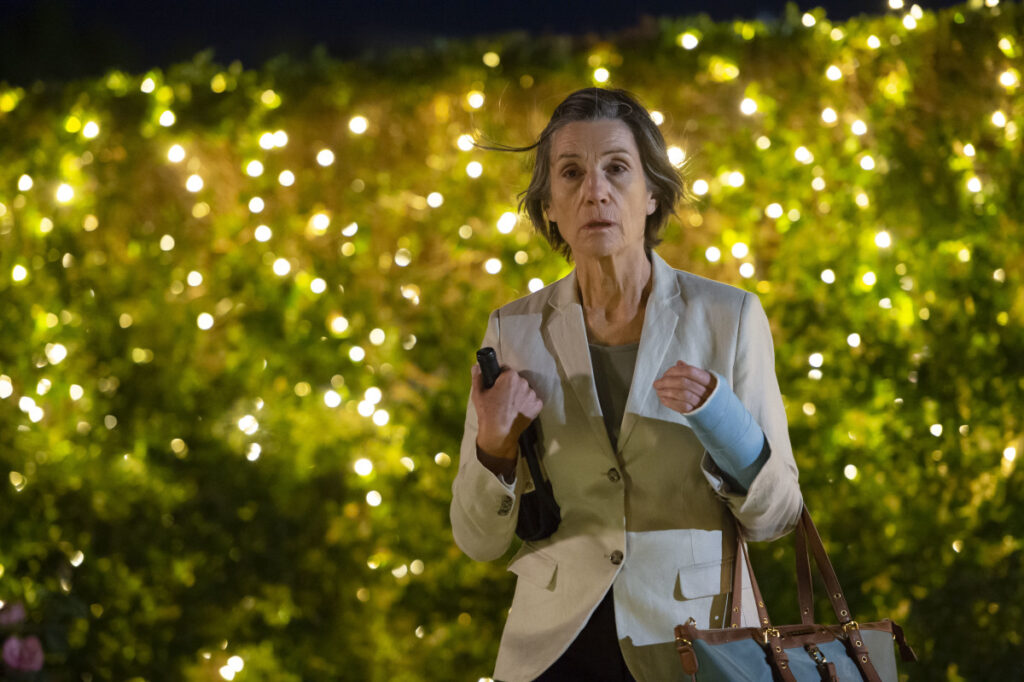If subject was all that mattered, Showtime’s “The End” would be worth watching merely for how it interrogates ideas about the end of life that fiction is often afraid to confront. However, as Roger once famously said, “It’s not what something is about, it’s how it is about it.” And the how here is infuriating, cloying, and pretentious, as it puts characters into manipulative, melodramatic situations and then asks viewers to care. A dark comedy of sorts, “The End” is annoyingly superficial, and filled with writing that constantly telegraphs how much it thinks it’s saying something about life and death instead of actually bothering to do so.

With a core that reminded me of what the excellent “Better Things” does so well (and so much better), “The End” focuses on three generations of women. It opens with a suicide attempt by Edie (Harriet Walker), who is then ushered off from her home in the U.K. by her daughter Kate (Frances O’Connor), and thrown into a retirement community. Edie is a ball of resentment, a woman who is ready to say goodbye to the mortal chapter of her life not because she wants to join her recently deceased husband but because she’s just done with everything. The chipper retirement community is the last place she wants to be, although “The End” doesn’t seem interested enough in turning Edie’s neighbors into actual people with the exception of one friend that she makes who tries to push her out of her comfort zone.
The balance between Edie’s arc and Kate’s feels overly scripted. You see, Kate is a doctor who specializes in palliative care. Yes, the woman whose mother wants to die knows a lot about the final stages of life. In the premiere, one of Kate’s patients makes it clear that she no longer wants to keep fighting, telling her doctor that she’s going to kill herself. Kate refuses to let this happen, and the show plays with themes of a doctor’s role in assisted suicide, but barely commits. They’re more like dressing instead of actual thematic exploration, especially after the patient from the premiere ends up dead and Kate struggles with the role she did and did not play. There’s something off about turning the death of a patient into a journey for that patient’s doctor, although O’Connor is effective. (She’s always been a bit underrated.)
The scenes with Kate’s family feel similarly over-scripted. She has two children, the outgoing Persephone (Ingrid Torelli) and a trans son named Oberon (Morgan Davies). The two children are skeletons on which to hang subplots about troubled adolescence like Persephone getting her first period or Oberon wanting to have gender reassignment surgery. None of it feels real. All of it sounds written.
It’s one thing for a sitcom to feel over-produced mostly to provoke a response, but I find it especially galling when its story has such important subject matter. Supporting trans youth, navigating the natural end of life, a physician’s role in assisted suicide—these are not easy themes, and yet they’ve been turned into such cheap devices here. O’Connor and Walker are very good, and they clearly would have been up to the challenge of tougher, deeper material. In the end, it’s a shame that no one bothered to give it them.
Five episodes screened for review.












